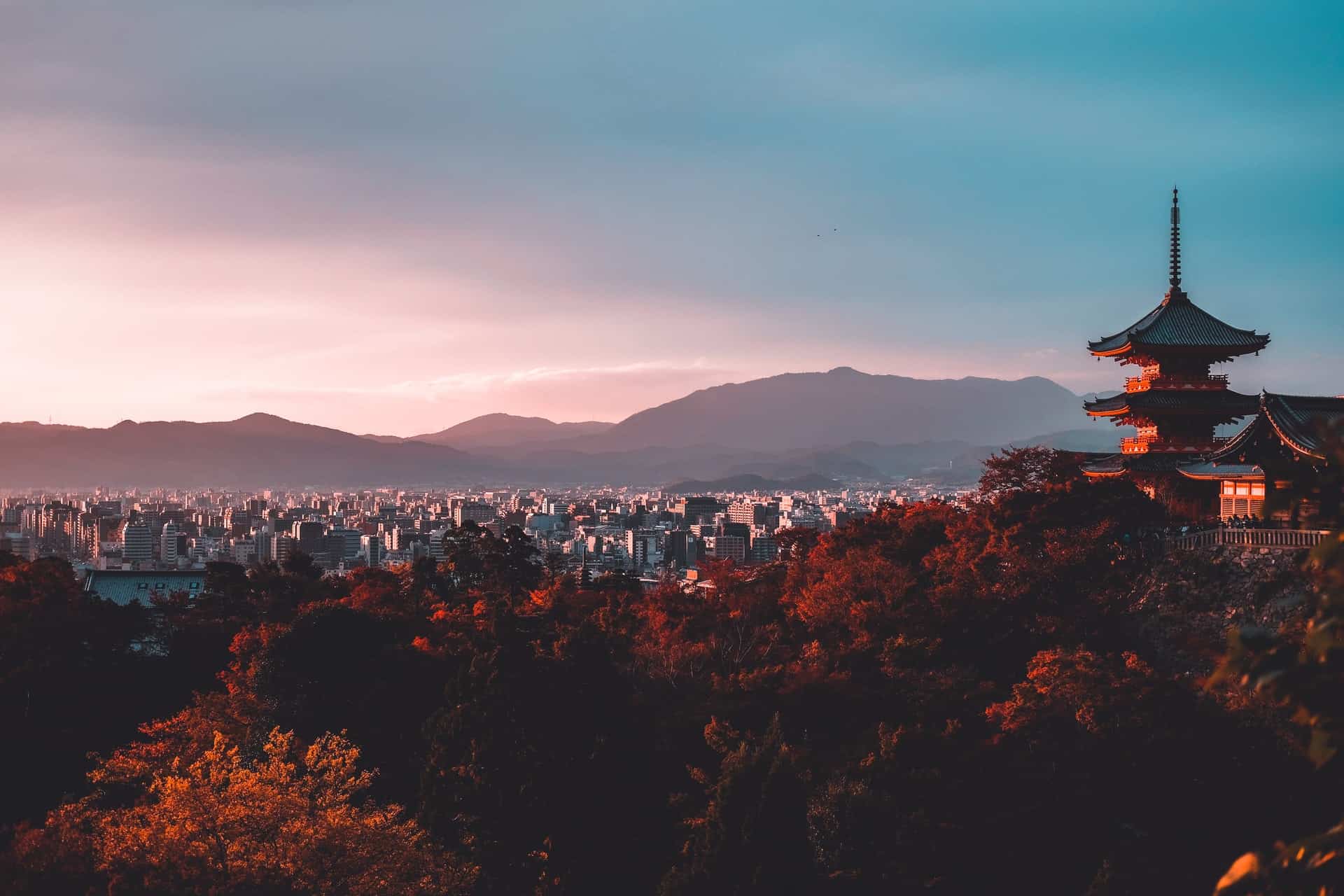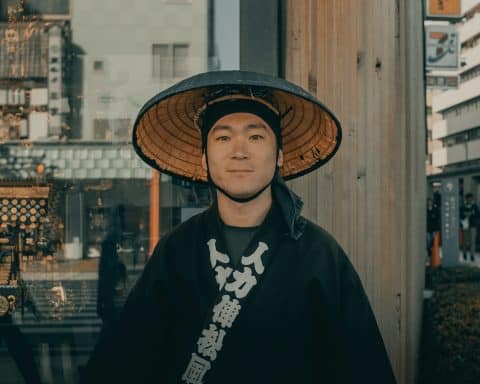Before I started this article, I couldn’t put my finger on exactly what it was that made Japan so unique and special. It seemed to me that while most other countries blended into one, Japan stuck out like a sore thumb, but in a good way. Does that make sense?
The main things that make Japan so special to the people who visit are its sense of identity, its definitive seasons, and the blend of traditional and modern in almost all aspects of everyday life. These are all relatively unique to Japan and that’s why it often stands out as a country on its own.
However, there are far more things about Japan that make it so unique. You may not come across all of them on your trip, but a few of them will certainly become apparent as soon as you step foot into the country.
1. Definitive seasons
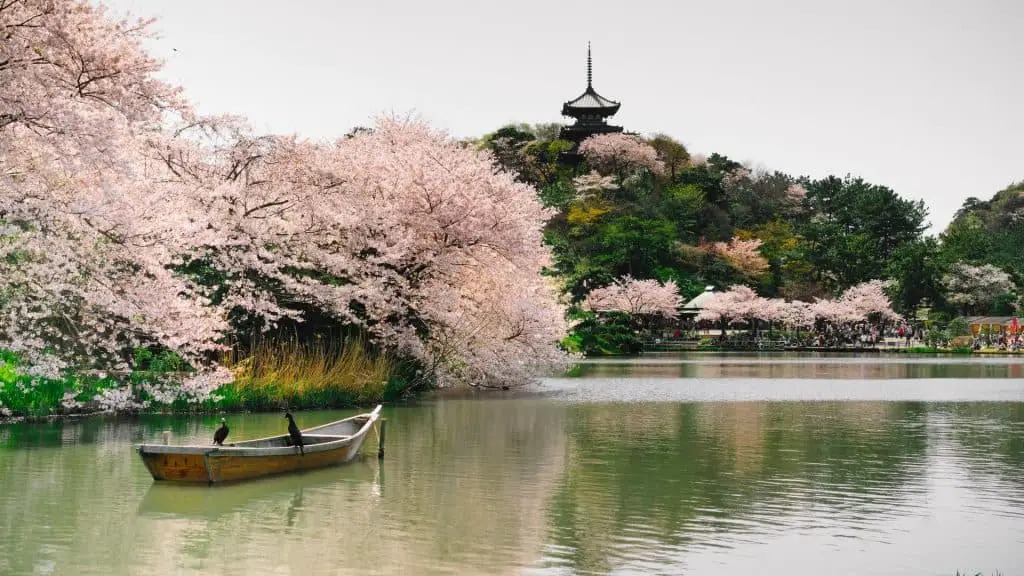
One of the biggest things that makes Japan so special is its seasons. Each one of Japan’s seasons is distinct. Unlike other parts of the world where each one of the seasons just seems to blend into one, Japan is lucky enough to benefit from 4 incredible natural changes per year.
For example, Winter sees an average of 300-600 inches of snow per year. Not only does that mean Japan has some of the best skiing in the world, but it also means it’s the snowiest place on the planet.
Spring is perhaps Japan’s most popular season with the world-famous cherry blossom blooming across the country. Catching these flowers in full bloom is a rare occurrence, but it doesn’t stop millions of people from trying to do so every year.
Summer is unbelievably hot, especially if you find yourself in one of the big cities. However, take a trip down south to somewhere like Okinawa and you’ll be treated to some of the best sandy beaches and crystal-clear waters you’ve ever seen.
What makes Japan’s seasons even more unique is the way that everyone in the country makes use of them. Here in England, people complain Summer is too short, Winter goes on for too long, and spring and Autumn are always grey. Of course, that’s not actually true, but people’s mindsets play a lot into the national opinion on seasons.
Japan on the other hand seems to have some sort of party or celebratory event for all of them. From hanami in spring, and matsuri in Summer, to Winter solstice festivals, and moon worship in Autumn, Japanese people still take pride in their country’s natural beauty.
2. Friendly People
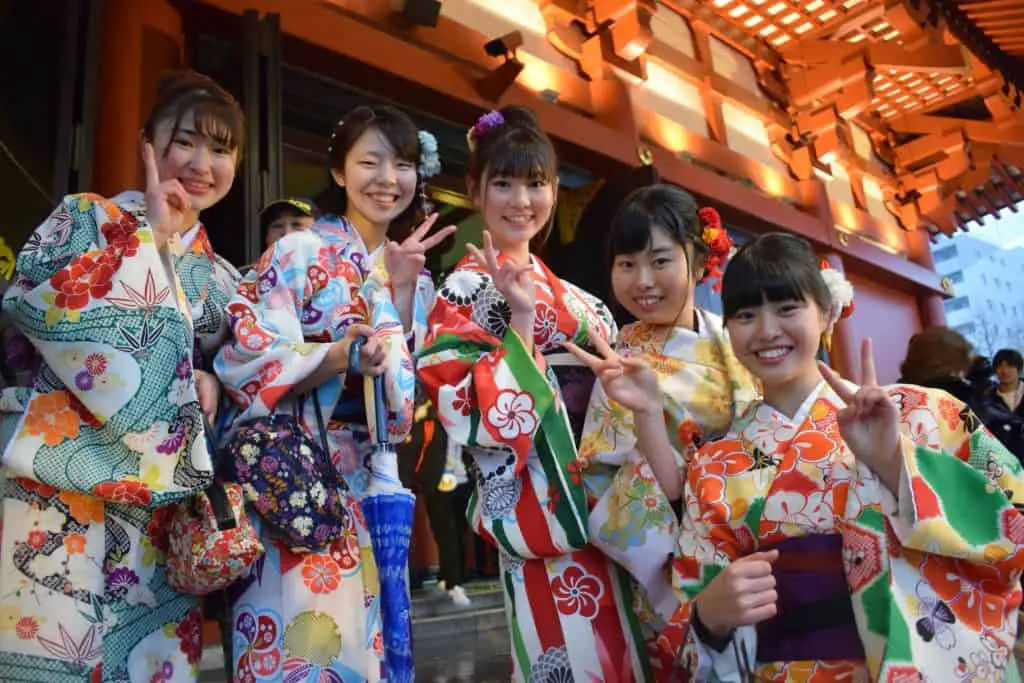
I’ve been to Japan numerous times (now I live here!), and every interaction I’ve had with a Japanese person has been fantastic. That’s not to say everyone in Japan is friendly, because undoubtedly that can’t be true, but the general feeling I get from people in Japan compared to some other countries I’ve been to is night and day.
There are several occasions I’ve been given free food, drinks, and always a sense of belonging. Of course, Japan is known for its rather insular outlook on foreigners, but that’s simply not always the case. Even something as simple as asking someone for directions will likely have them go above and beyond to try and help you.
Not only that, but in almost all situations, most Japanese people will bow to you as a way of saying thank you. It’s similar to how we would shake hands but always seems to be a lot more respectful. That’s how I’ve interpreted it anyway.
3. Dedication to customer service
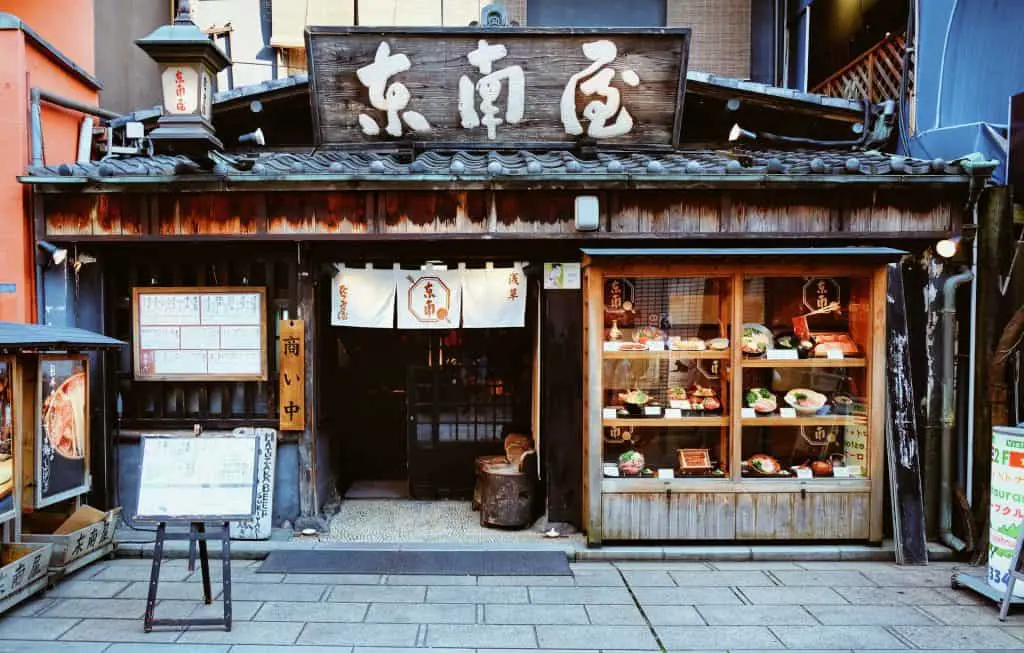
If you’ve ever been inside a shop in Japan, you’ve probably experienced their world-class customer service and dedication to getting the job done. I never thought I would consider a shopping experience something that makes Japan special, but there we go!
For some, the rules and regulations thrust upon each and every Japanese employee may seem like too much, but the results speak for themselves. Japanese hospitality, in my opinion, is by far the best in the world.
For the most part, every time you interact with someone in Japan, you’ll get the feeling that you’re dealing with someone who is striving to achieve perfection for you, in whatever way that might be. Of course, they can’t always deliver that perfection but seem to go to any lengths to try. This is something that makes Japan unique, and not something I’ve encountered anywhere else.
One example of Japanese dedication to customer service (and making the customer feel like the only person in the world) is the phrase “Irasshaimase!” which is something you’re likely to hear in cafes, restaurants, and retail shops. It basically means “Welcome to my Cafe/Restaurant/Shop”, and is often said in an upbeat, loud voice.
It might only be a small act, but it’s something that makes Japan unique and your time in the shop feel special. I’m not entirely sure how I’d feel if I was on the other side of it, though. Having to say that each time someone comes into the shop seems pretty full on…
4. Architecture
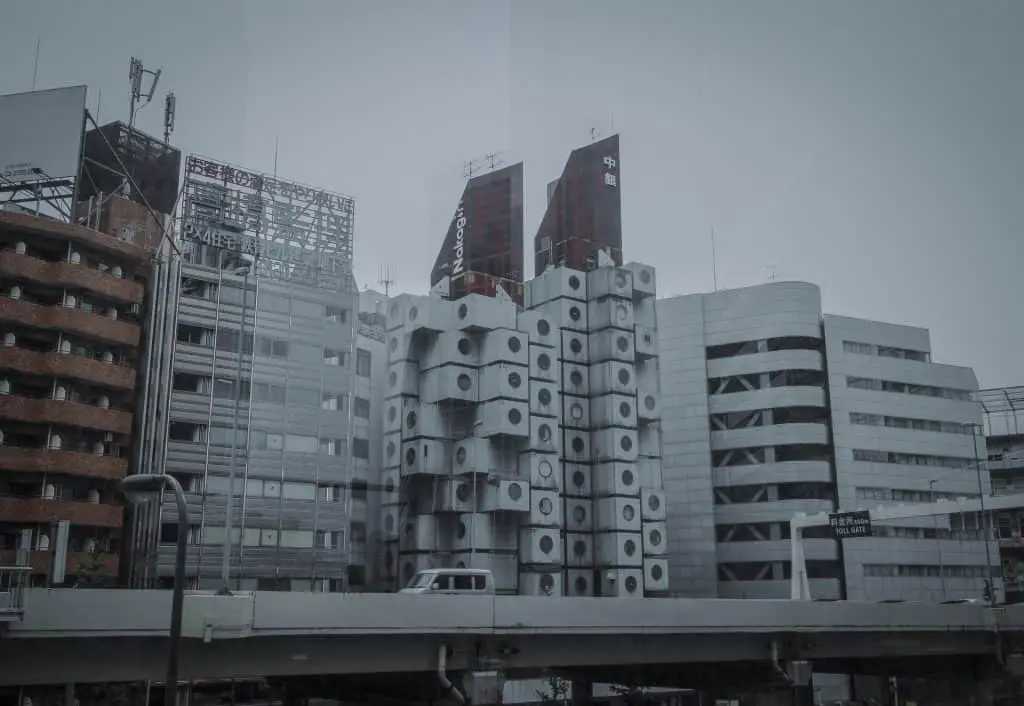
The first thing I noticed about Japan when I initially came here was the incredibly unique architecture. I mean, where else in the world would you get something that looks like that building above!?
Unfortunately, the Nakagin Capsule Tower (that building above) was demolished in 2022. However it wasn’t demolished because it didn’t fit with Tokyo’s skyline, it was removed because of its deterioration over the last few years.
Don’t worry, there are still hundreds of similarly unique and futuristic buildings all across Japan. Your cyberpunk dreams can live on!
But it’s not just new or futuristic-looking buildings that make Japan’s architectural scene so fascinating. The Horyu-ji temple in Nara is the world’s oldest wooden building. Couple that with around 80,000 ancient Buddhist temples, and you’ll start to understand why Japan’s urban landscape is so unique.
5. Blend of traditional culture and modern technology
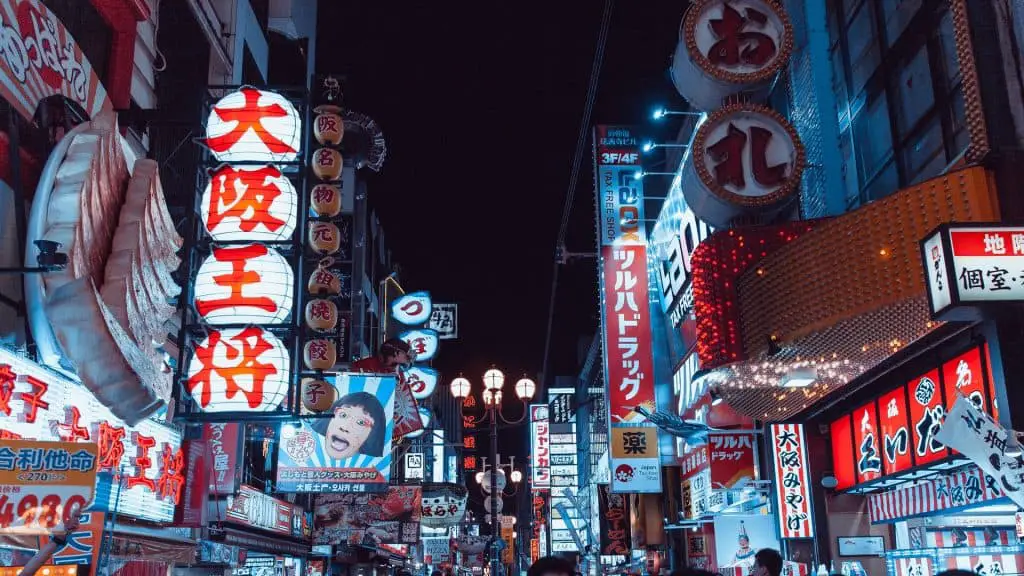
When you think of Japan, I would imagine you’ve got one of two images in your head. The first is probably something similar to the photo above.
Bright, neon lights, garish signs, and so many visual stimuli that it makes your head hurt.
The other half of you will most likely picture a zen-like countryside, bamboo forests, ancient temples, and an altogether slower pace of life.
Want to know the best part? You’re both exactly right. A beautifully combined concoction of both of your imaginations is what makes Japan, Japan. Somehow this country is able to blur the line between traditional and modern, and yet still help you experience the best parts of each.
I don’t know another place in the world that intertwines the modern with the ancient as well as Japan, so this is definitely one reason Japan is so special.
Japan is also a country that loves technology, and whilst we’ve already discovered that older technology is strangely common over here, that doesn’t mean things like robot hotels, giant robotic Gundam, and futuristic vending machines aren’t a thing.
6. Efficiency in all aspects of life
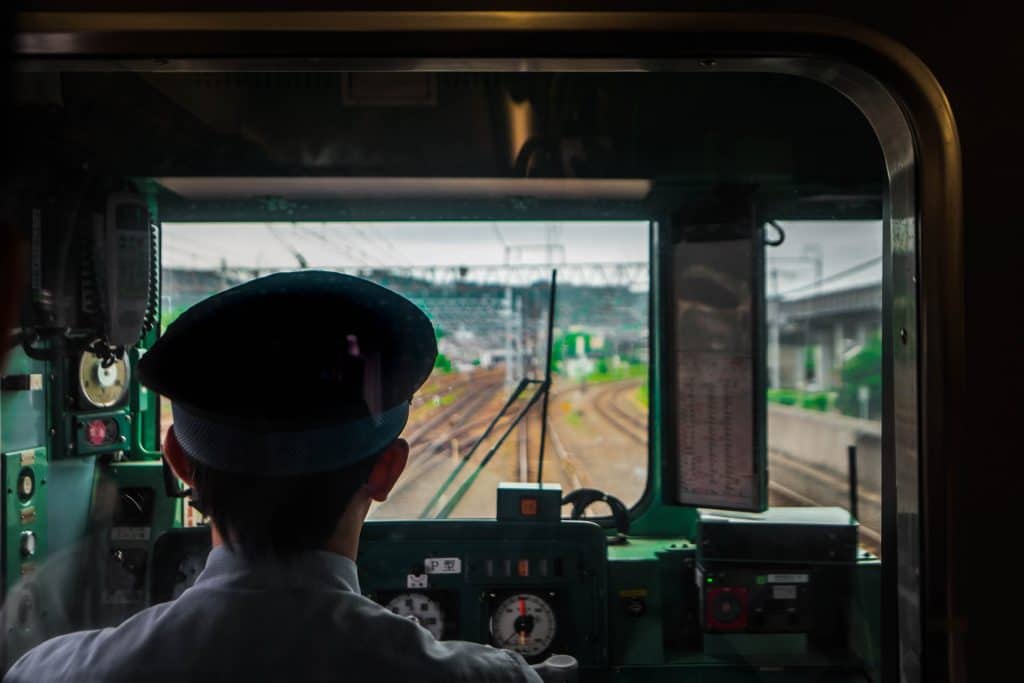
Let’s be honest, there’s one thing that shows Japanese efficiency like nothing else, and that’s the train system. Not only is it something that makes Japan so unique, but it’s also one of the biggest points of pride of the country as a whole.
On average, Japanese trains face around 1 minute of delay over the course of a year. Bullet trains are, at most, 20 seconds late, and normal commuter trains are about 50 seconds late. In 2017, the Tsukuba Express line manager released an apology for a bullet train that left 20 seconds early. Yep, you read that right, just 20 seconds early.
So if you’re thinking about going on holiday to Japan, you can rest easy in the knowledge that public transport is absolutely not going to be the bottleneck to you completing your bucket list. Unlike in rural places in the United Kingdom (and the US, I’m sure), you won’t have to wait half an hour for a bus or train that you’re only 50% sure will even turn up.
This means that unless your itinerary features some truly off-the-beaten-path destinations, you won’t even need to consider renting a car. As far as I’m concerned, renting a car often adds extra stress, and no one needs that.
…Or maybe you love renting a car out on holiday, in which case, knock yourself out! Just make sure you experience the best public transport system in the world at least once.
7. Internal Respect For Their Country
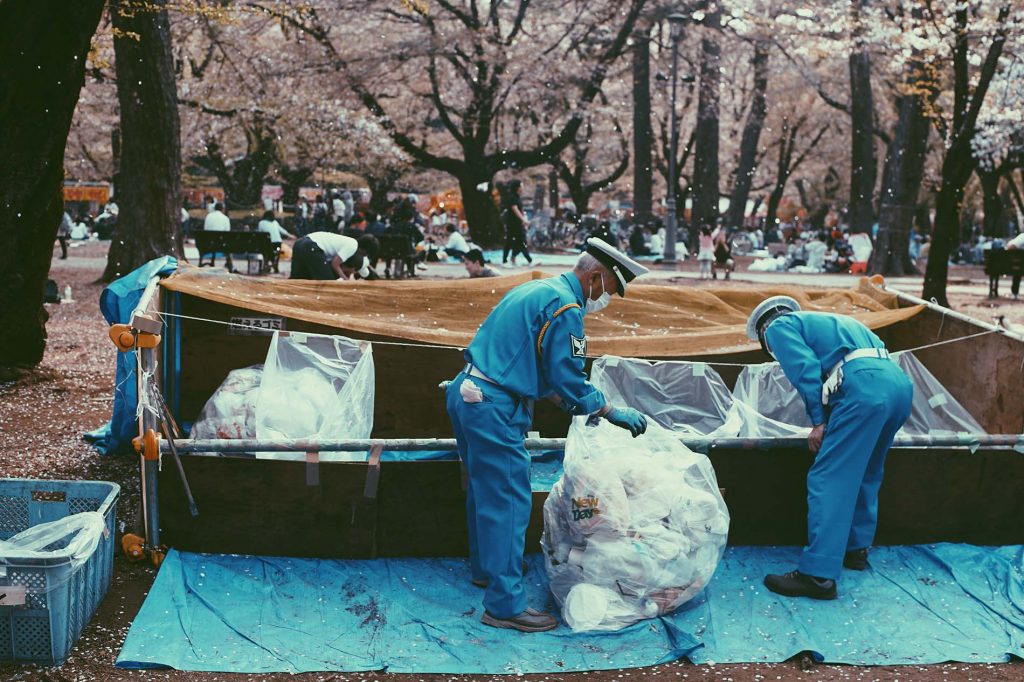
Internal and external respect is definitely a reason Japan is special. The vast majority of residents of Japan have a great amount of respect for the country they live in. As we’ve found out before, a lot of this has to do with the Japanese school system, and the lessons learned seem to have followed them through life.
For instance, the Metropolitan Bureau of Transportation in Tokyo has removed all rubbish bins from the train stations. Why have they done this you might ask? Well, because they simply aren’t needed anymore.
Japanese citizens, almost without exception, take their rubbish home and sort it into their respective recycling bins. So if people have the respect to take their rubbish home, then why bother having public bins? Try doing this in almost any of other countries and you’ll almost certainly get rubbish piling up at the sides of the road.
Another way in which Japanese people show an immense amount of respect for their country is through very little graffiti and the destruction of property. With over 2 million vending machines in public places, no other country would consider leaving expensive property like this exposed to the potential vandalism or destruction that may occur.
Oh, and I didn’t know where to place this on the list, but train cleaners and station conductors bow to trains as they enter and leave the station. How cool is that?! So it’s not just people they show a lot of respect to, but also… Trains! (probably the people on the trains, but I like the idea of them bowing to the trains themselves…) If that isn’t something that makes Japan Unique, I don’t know what is!
8. Prominent subcultures
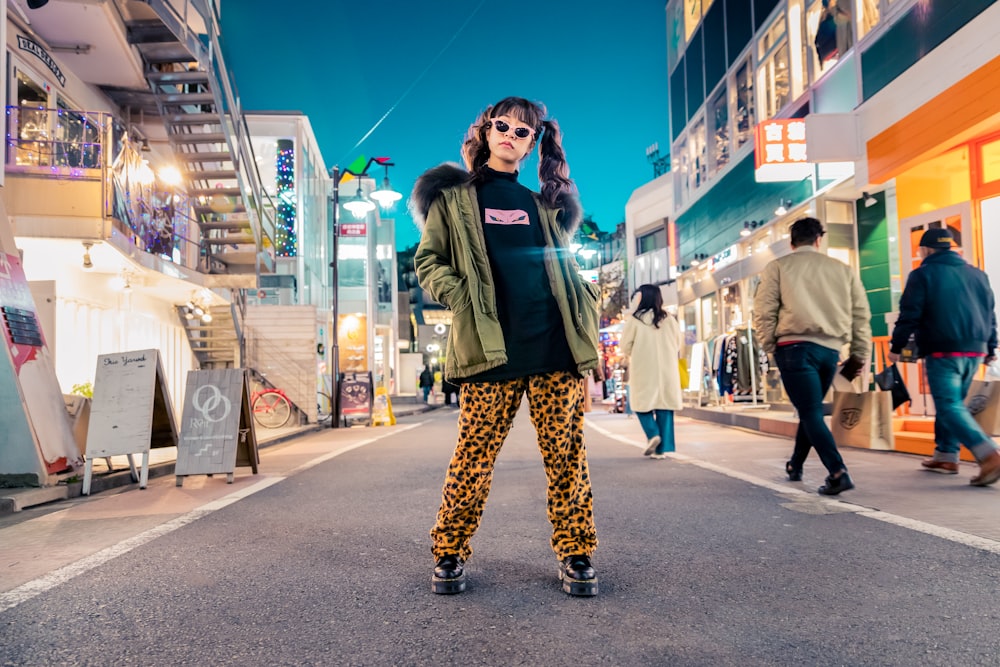
Japan has a very prominent ‘network’ of subcultures. By ‘Subculture’ I mean a group of people who chose to (mainly dress) extremely differently from what Japanese tradition and culture would expect of them.
This isn’t the place to go through each of them in detail, but the following are some of the most popular in Japan:
- Gyaru – An umbrella category for the many different fashion scenes followed by a group of girls in Japan.
- Lolita Fashion – Influenced by Victorian fashion and an aesthetic feeling of ‘Cuteness’
- Otaku – In simple terms, a nerd, geek, or someone obsessed with a particular hobby (normally computers and electronics)
- Visual Kai – Makeup, over-the-top hairstyles, and costumes. Often linked to the music scene.
While it’s true that other countries do have subcultures, I don’t feel like anywhere goes as full-on as I’ve seen in Japan. So while it isn’t technically unique, the intensity they go to probably is.
9. Experimentation
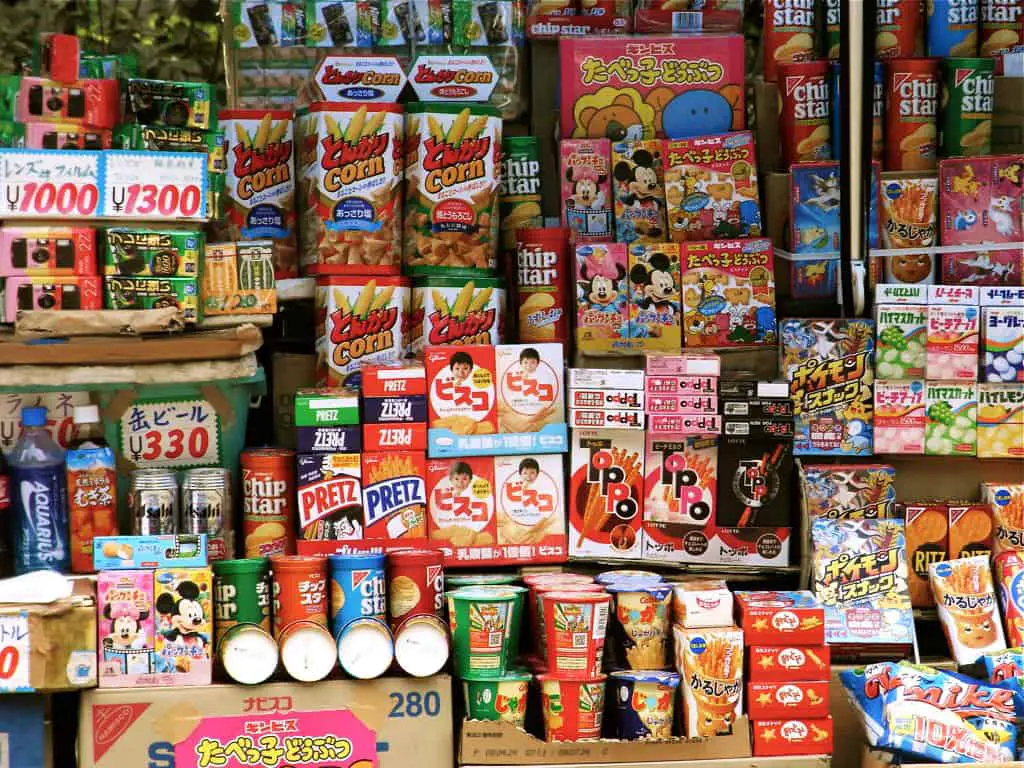
As a country, Japan doesn’t like going against something that’s working. Because if something is working, it should be left alone. Again, I’ve talked about this being the reason Japan is falling behind in the technology race here.
However, in some aspects of its culture, experimentation is at the forefront of global food innovation. For instance, something you may have heard about before is the huge amount of KitKat and pringle flavors on offer. This is a running theme throughout a lot of Japanese food, but these two examples are the most prominent.
Guess how many KitKat flavors there are in Japan?
Nope, you’re wrong, there have actually been over 300 limited editions since the year 2000. It seems a shame that over in the UK, we only had one or two…
I imagine the US has more of these flavors, but still nowhere near as many as Japan.
If that doesn’t show you how far Japan is willing to go in the name of experimentation, and just how unique its approach to food is, just have a look at this Japanese snack list.
10. Safest country in the world

Japan is one of the safest countries in the world. If you’re a solo traveler, I doubt you’ll have a moment during your trip when you feel uncomfortable.
The most dangerous part about living in Japan is probably the natural disasters like earthquakes, tsunamis, typhoons, and volcano eruptions. Even still, the likelihood you’ll get caught in a bad one of these is extremely low.
There have also been many reports online, and times that I’ve seen with my own eyes, of people leaving their cafe tables unattended with computers and other valuables while they go to the toilet. That’s definitely unique to Japan, and something you wouldn’t consider doing in almost all Western countries.
Left your Randoseru bag somewhere? It’s almost guaranteed to find its way back to you somehow, whether that’s being sent directly to your address, or ending up at one of the local police boxes. Of course, you should try to remember your belongings when you leave, but in the unfortunate case that you do forget, you may not be in as much trouble as you think.
Finally, it’s extremely common for residents to leave their doors unlocked all the time in Japan. Perhaps more so in rural areas, but still a frequent occurrence. Having grown up in London, this was something I would never have considered doing, but apparently, it’s pretty normal over here.



